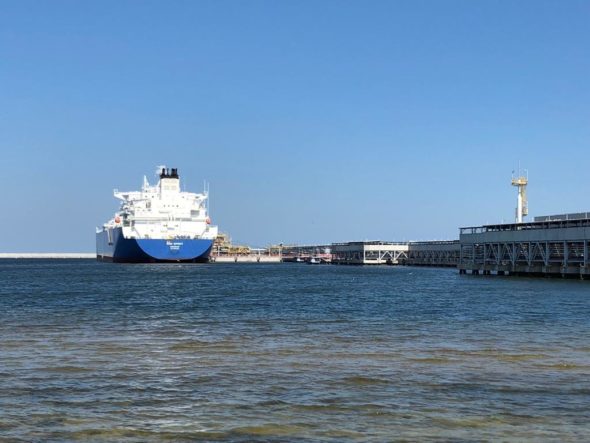Germany has lost its freedom to pursue its own interests due to years of Russian lobbying in Mecklenburg-Vorpommern, because the narrative about bad Americans and harmful LNG has survived even the Zeitenwende, which in the peripheries is treated as a Berlin fad – writes Patrycja Anna Tepper from the Institute for Western Affairs in an article for BiznesAlert.pl.
After Russia’s aggression in Ukraine the Prime Minister of Mecklenburg-Vorpommern, Manuela Schwesig, announced the Zeitenwende in the state governed by her. Her state’s pro-Russian energy policy had to be radically revised when Russia turned off the gas tap on Germany. Then there were the explosions of gas pipelines, and it was the construction of Nord Stream 1 and Nord Stream 2 that for years was the axis of policy for the local government. All this has forced the Prime Minister to face the prospect of her north-western state having to accommodate new LNG infrastructure. For a Social Democrat, brought up in the German Democratic Republic this was a taboo subject until now, because in liquefied gas she saw primarily the American interest, and she did not want to allow the US to enrich at any cost. In addition, representatives of Russian companies have repeatedly warned her against such a turn of events.
The federal government has decided that two of the planned five LNG terminals will be located in Mecklenburg-Vorpommern – one in Lubmin and the other five kilometers from the coast of Rügen. The LNG terminal in Lubmin was built at a record pace, showing how political will can catalyze such projects. However, the other terminal is facing a problem, because unexpectedly Manuela Schwesig decided to withdraw from earlier decisions, citing the ongoing protests of residents on the island. This is all the more embarrassing and incomprehensible because, firstly, it contradicts the party line from which Schwesig comes, and secondly, according to Chancellor Olaf Scholz and Vice-Chancellor Robert Habeck, Rügen was chosen as the location because of the need to ensure energy security precisely in East Germany. It is technically impossible to locate the terminal in the depths of the sea, as the residents want, members of the federal government argue.
Nevertheless, Manuela Schwesig disputes the necessity of the initiative, requesting additional material to prove its merits. It is difficult to interpret the change of the Prime Minister’s decision on LNG and the support for the protests of the residents other than it being a political tool to block the investment. Rügen was also a strategic location during the construction of Nord Stream 2. At that time, much greater interference in the local landscape and nature was involved, and farmers even had to decide to give up their land, the greening of which the company proposed as part of compensation for losses incurred in connection with the construction of the gas pipeline.
The Energy Minister at the time, Christian Pegel, who was closely involved in the subsequent Climate Foundation scandal, argued for the benefits of the pipeline and the jobs it would create. The lobbying machine was in full swing, and the beautiful coasts of Rügen are still covered with concrete pipes, which were transported by environmentally „un-friendly” ships. It seems that Germany has lost its freedom to pursue its own interests due to years of Russian lobbying in Mecklenburg-Vorpommern, because the narrative about bad Americans and harmful LNG has survived even the Zeitenwende, which in the periphery is treated as a Berlin fad.









